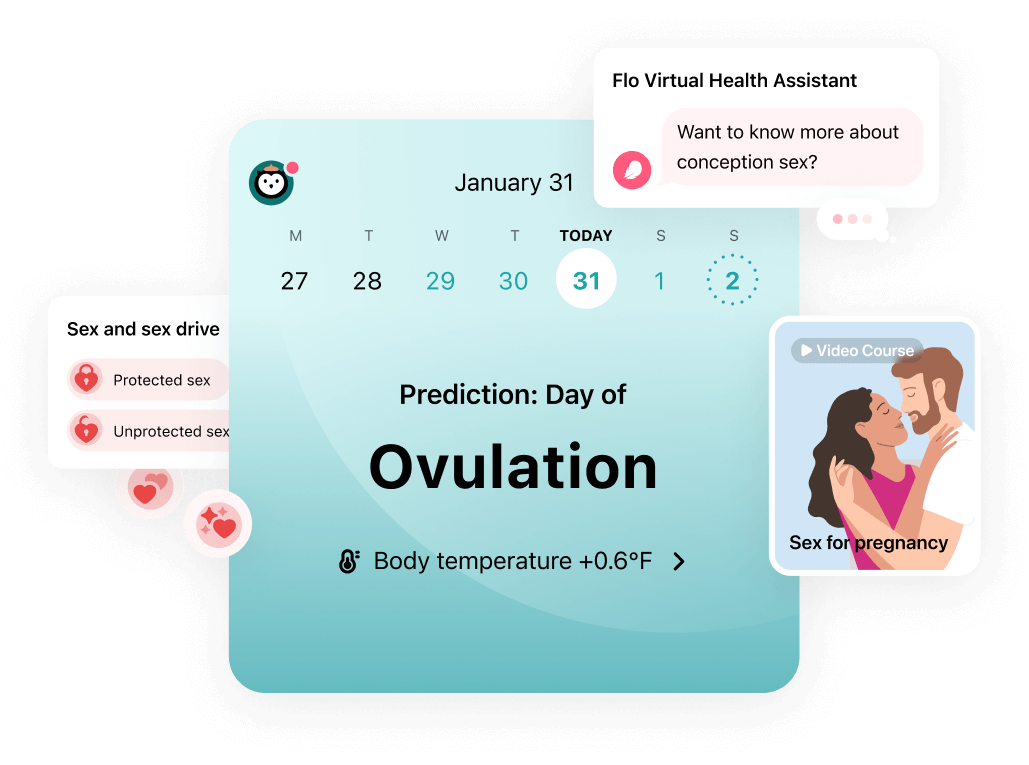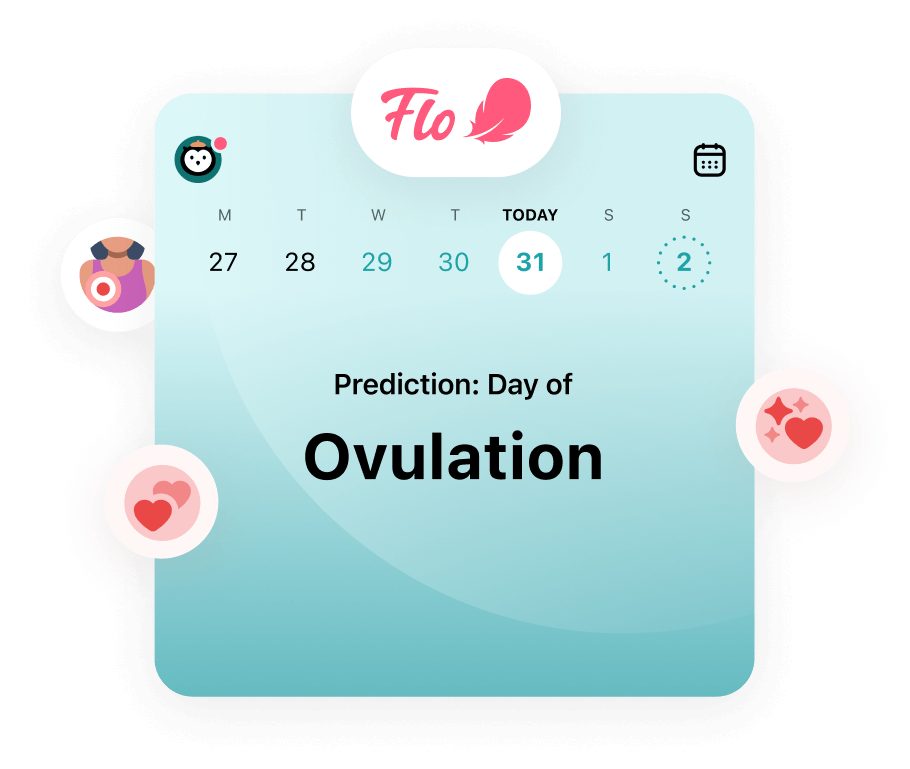When you’re trying to conceive, it’s tempting to try anything that might help. But does holding your legs up after sex increase your chances of getting pregnant? We asked an expert.
-
Tracking cycle
-
Getting pregnant
-
Pregnancy
-
Help Center
-
Flo for Partners
-
Anonymous Mode
-
Flo app reviews
-
Flo Premium New
-
Secret Chats New
-
Symptom Checker New
-
Your cycle
-
Health 360°
-
Getting pregnant
-
Pregnancy
-
Being a mom
-
LGBTQ+
-
Quizzes
-
Ovulation calculator
-
hCG calculator
-
Pregnancy test calculator
-
Menstrual cycle calculator
-
Period calculator
-
Implantation calculator
-
Pregnancy weeks to months calculator
-
Pregnancy due date calculator
-
IVF and FET due date calculator
-
Due date calculator by ultrasound
-
Medical Affairs
-
Science & Research
-
Pass It On Project New
-
Privacy Portal
-
Press Center
-
Flo Accuracy
-
Careers
-
Contact Us
Does Holding Your Legs Up Help You Get Pregnant? The Facts


Every piece of content at Flo Health adheres to the highest editorial standards for language, style, and medical accuracy. To learn what we do to deliver the best health and lifestyle insights to you, check out our content review principles.
A common fertility myth — and one that often crops up in movies – is that if someone wants to get pregnant, they can maximize the chances of conception by lying with their legs in the air after sex or artificial insemination.
The “logic” seems to be that gravity helps sperm make its way through the cervix so it can fertilize a waiting egg, leading to conception. Some studies have found that remaining immobile for any time up to 15 minutes after insemination can have a positive impact on conception, but there is little evidence to suggest that gravity is needed in the process.
And while it’s easy to see where the sense in this idea is, what are the facts? We asked an expert to explain whether holding your legs up helps you get pregnant.

 Over
7.8M
ratings averaging
4.8/5
*
Over
7.8M
ratings averaging
4.8/5
*
Understand your fertility better with the Flo app
- Learn more about your fertility signals.
- Make sense of conception sex with help from our virtual Health Assistant.
- Log when you have unprotected sex (for your eyes only!).
 Over
7.8M
ratings averaging
4.8/5
*
Over
7.8M
ratings averaging
4.8/5
*

Do you want to learn the best time to get pregnant?
The Flo app can teach you all about trying to conceive

 Over
7.8M
ratings averaging
4.8/5
*
Over
7.8M
ratings averaging
4.8/5
*
Understand your fertility better with the Flo app
- Learn more about your fertility signals.
- Make sense of conception sex with help from our virtual Health Assistant.
- Log when you have unprotected sex (for your eyes only!).
Does holding your legs up help you get pregnant: What is insemination?
Before looking at the science around holding your legs up after sex, it’s important to know what insemination is and how conception happens.
The term insemination refers to the process whereby sperm enters the uterus in order to fertilize an egg (conception). This can happen in two ways. The first is during unprotected sex that results in semen entering the vagina. The second is artificial insemination, which can take place in a fertility clinic or at home.
“Intrauterine insemination (also known as IUI) is performed by a health care provider in an office after an ejaculate is washed and concentrated,” says Tiffany Jones, MD, a reproductive endocrinologist and infertility specialist.
“A catheter is placed through the cervix and into the uterus, and the processed sperm are then placed at the top of the uterus, whereas intracervical insemination can be done at home with a kit. It is commonly used by couples or single women using donor sperm. Both of these techniques would be considered ‘artificial.’”
Outside of cis-heterosexual relationships, many LGBTQ+ couples trying to get pregnant will choose IUI since it’s often less expensive than In Vitro Fertilisation (IVF).
This is particularly popular among lesbian and bi couples where one or more individuals is capable of getting pregnant, but it’s only one of many options LGBTQ+ people can consider if they want to have a child. You can read our guide to having a baby when you’re LGBTQ+ here.
Nonetheless, the cost of any fertility treatment can stack up depending on how successful it is, so understanding the process and what can help improve your chances of conception can be both helpful and reassuring.

Does holding your legs up help you get pregnant?
As for the ol’ legs in the air myth, Dr. Jones says there’s no truth in it, and the same goes for the idea you need to stay lying flat for a while after sex. “Sperm swim, so they don’t rely on gravity to get to where they need to go,” she explains.
Nonetheless, there are certain things you can do to improve your chances of getting pregnant, including perhaps the most important: having sex or IUI in the days before (or the day when) you release an egg during ovulation.
Does holding your legs up help you get pregnant: What increases your chances of conception?
“The best way to maximize your chance of conception is to have intercourse or an insemination around the time of ovulation,” says Dr. Jones. “Ovulation typically occurs 12–14 days prior to the start of a period. In women with a 28-day cycle, that would mean around cycle day 14 (14 days after the start of a period).”
For those couples trying to conceive through sex, Dr. Jones says that increasing the frequency of intercourse in the lead-up to ovulation can be beneficial if you’re in the mood.
“Because sperm can live in the female reproductive tract for 3–5 days, having intercourse every other day starting cycle day 10 to about cycle 16 in a 28-day cycle should be sufficient to make sure the sperm and the egg have an opportunity to meet,” she says.
You can take the guesswork out of conception by using a period tracker like Flo. It keeps a close eye on your cycle, so you know when you’re most fertile.
For couples tracking ovulation with a predictor kit, the egg is only viable for 24 hours, so timing is important. That egg typically releases 12–24 hours after the peak of a luteinizing hormone (LH) surge, so having sex around that time is a good idea. This is why donor sperm inseminations are usually performed sometime in the 36 hours after the beginning of an LH surge.
In the meantime, there are plenty of things you can do to aid your chances of conception, these include:
Take a quiz
Find out what you can do with our Health Assistant
- Managing your stress — whether it’s via meditation, exercise, or deep breathing Mental and psychological health are more closely linked to reproductive health than you might think. While the jury’s out on how much day-to-day stress can impact your fertility, some studies have found improved pregnancy outcomes for patients who are pursuing psychological interventions to manage stress and anxiety
- Avoiding alcohol and cigarettes, which can both lower your chances of conceiving and also harm the fetus if you do conceive
- Taking prenatal vitamins that contain both folic acid (which aids fetal development after conception) and vitamin D
- Staying hydrated can both aid conception and support development of amniotic fluid in the event of conception
- Tracking ovulation with a period tracker app like Flo to ensure you’re optimizing your chances of conception
- Increasing the frequency of intercourse during your fertile window if that’s your method of conception
Having said all that: Sex is not just about conception, and it’s important not to get too fixated on the goal of getting pregnant, which can add stress to the situation. And while the jury’s still out on how much day-to-day stress can impact your fertility, some studies have found improved pregnancy outcomes for patients who are pursuing psychological interventions to manage stress and anxiety. So if you find yourself stressing it, try to remember that sex should be fun and not just another chore on your to-do list.

Does holding your legs up help you get pregnant: When to see a doctor
The most important thing for those pursuing conception through sex is to seek help if pregnancy isn’t happening after 12 months of trying if you’re under 35 or after six months if you’re 35 or older.
“If you’re trying to conceive and your medical history includes irregular cycles, sexually transmitted diseases, endometriosis, fibroids, or polycystic ovary syndrome, then a specialist should be seen sooner,” Dr. Jones says.
She also explains that a semen analysis might be needed for a partner who has “poorly controlled diabetes or uses testosterone” to make sure there are sufficient numbers of sperm in the ejaculate.


Hey, I'm Anique
I started using Flo app to track my period and ovulation because we wanted to have a baby.


The Flo app helped me learn about my body and spot ovulation signs during our conception journey.


I vividly
remember the day
that we switched
Flo into
Pregnancy Mode — it was
such a special
moment.
Real stories, real results
Learn how the Flo app became an amazing cheerleader for us on our conception journey.
References
“Smoking During Pregnancy.” Centers for Disease Control and Prevention, 29 May 2019, www.cdc.gov/tobacco/basic_information/health_effects/pregnancy/index.htm. Accessed 10 Nov. 2021
“Intrauterine Insemination (IUI).” Nhs.Uk, 1 Apr. 2020, www.nhs.uk/conditions/artificial-insemination. Accessed 10 Nov. 2021
“Having a Baby If You Are LGBT+.” Nhs.Uk, 28 May 2021, www.nhs.uk/pregnancy/trying-for-a-baby/having-a-baby-if-you-are-lgbt-plus. Accessed 10 Nov. 2021
“Analysis of Pre-Ovulatory Changes in Cervical Mucus Hydration and Sperm Penetrability.” National Library of Medicine, pubmed.ncbi.nlm.nih.gov/9288332. Accessed 10 Nov. 2021
“How Much Water Should I Drink during Pregnancy?” ACOG, www.acog.org/womens-health/experts-and-stories/ask-acog/how-much-water-should-i-drink-during-pregnancy. Accessed 10 Nov. 2021
“The Relationship Between Stress and Infertility.” US National Library of Medicine National Institutes of Health, www.ncbi.nlm.nih.gov/pmc/articles/PMC6016043. Accessed 10 Nov. 2021
Custers, Inge. “Immobilisation versus Immediate Mobilisation after Intrauterine Insemination: Randomised Controlled Trial.” The BMJ, 30 Oct. 2009, www.bmj.com/content/339/bmj.b4080. Accessed 10 Nov. 2021
History of updates
Current version (14 March 2022)
Published (09 December 2021)
In this article

Get your personal guide to fertility
-
Learn how to read your body's ovulation signals
-
Find daily conception tips from our experts
-
Chat with others who are trying to get pregnant




